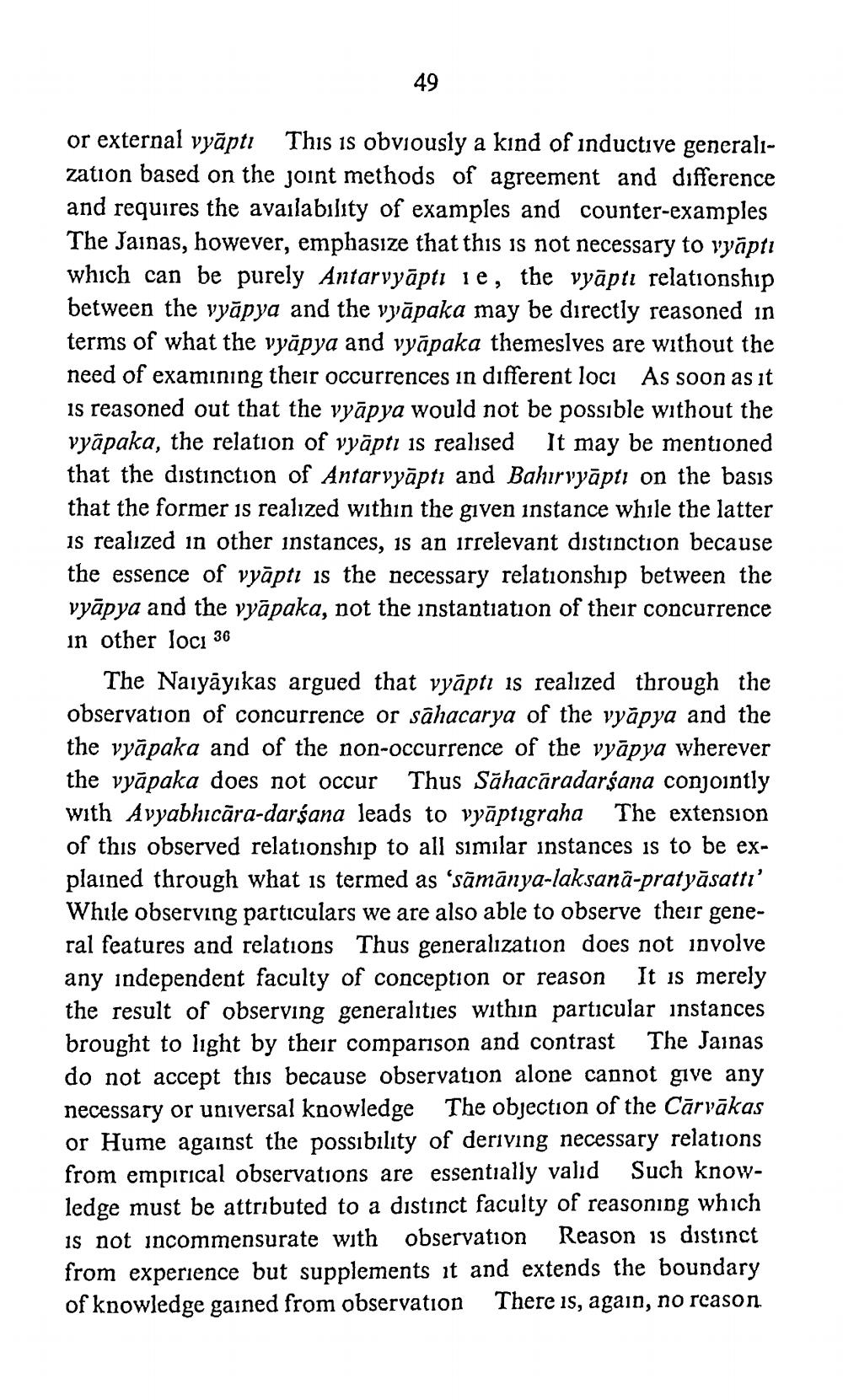________________
49
or external vyāpti This is obviously a kind of inductive generalization based on the joint methods of agreement and difference and requires the availability of examples and counter-examples The Jainas, however, emphasize that this is not necessary to vyaptı which can be purely Antarvyāpti ie, the vyaptı relationship between the vyapya and the vyāpaka may be directly reasoned in terms of what the vyāpya and vyāpaka themeslves are without the need of examining their occurrences in different loci As soon as it is reasoned out that the vyāpya would not be possible without the vyāpaka, the relation of vyapti is realised It may be mentioned that the distinction of Antarvyāpti and Bahirvyaptı on the basis that the former is realized within the given instance while the latter is realized in other instances, is an irrelevant distinction because the essence of vyapti is the necessary relationship between the vyāpya and the vyāpaka, not the instantiation of their concurrence in other locI 36
The Naiyayikas argued that vyāpti is realized through the observation of concurrence or sahacarya of the vyapya and the the vyapaka and of the non-occurrence of the vyapya wherever the vyapaka does not occur Thus Sahacāradarsana conjointly with Avyabhicara-darśana leads to vyaptıgraha The extension of this observed relationship to all similar instances is to be explained through what is termed as 'sāmānya-laksanā-pratyāsattı' While observing particulars we are also able to observe their general features and relations Thus generalization does not involve any independent faculty of conception or reason It is merely the result of observing generalities within particular instances brought to light by their comparison and contrast The Jainas do not accept this because observation alone cannot give any necessary or universal knowledge The objection of the Carvākas or Hume against the possibility of deriving necessary relations from empirical observations are essentially valid Such knowledge must be attributed to a distinct faculty of reasoning which is not incommensurate with observation Reason is distinct from experience but supplements it and extends the boundary of knowledge gained from observation There is, again, no reason




